Gut Health
What are probiotics?
Probiotics are a big subject when it comes to gut health, but what are they and why do we need them?
The word probiotic comes from the Greek meaning ‘for life’. The accepted definition is that probiotics are ‘live micro-organisms which, when administered in adequate amounts, confer a health benefit to the host’.
In other words, probiotics are the gut-friendly bacteria that have numerous benefits for various areas of our health. This includes maintaining healthy gut movements, promoting immunity and lowering cholesterol.
But just how do we get these benefits, and is it easy to incorporate probiotics into our daily routine?
Probiotic benefits
- Controlling and alleviating Irritable Bowel Syndrome (IBS)
- Lowering blood cholesterol
- Helping us better digest milk products
- Improving the pH of our gut so that bad bacteria and viruses are killed off
There’s a lot of research going into individual strains of bacteria and what they can do for us, but in the meantime go for supplements that contain at least 10 strains – the more good gut bugs we have, the less likely the bad ones are to get a look in.
Shopping for supplements
Being a savvy probiotic shopper can be hard with hundreds of supplements available in health food shops and online. Here are some our pointers to keep in mind when shopping:
- Diversity: as mentioned above, try to find a product with as many different strains as possible where the number of microbes is counted in billions, not millions
- Make sure the product is guaranteed to survive the high acidity of your stomach
- Most probiotics are derived from animal products, sometimes even humans, so bear this in mind if it’s something you’re conscious of.
- Liquids or powders?
- The most common type of probiotics come freeze-dried and in capsules; these are best taken first thing on an empty stomach. Some critics say some of the probiotics die during this process but others, including Liz, see real results from taking them
- You can find liquids in the refrigerated section of health food shops. Some claim that they are the most potent form, but they can be a hassle when you’re out and about
- Probiotic drinks can be convenient, but beware they often contain fewer strains compared to other supplements
Liz’s top probiotics
The Better Menopause Better Gut

A highly concentrated, science-backed probiotic formula with 6 recognised strains of bacteria, expertly blended to help support the gut health of perimenopausal and menopausal women.
Psst… don’t forget to use LIZLOVES to save 15% off your order.
Microbz
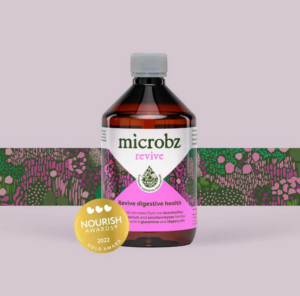
Teeming with all of your probiotic needs, Microbz creates products that utilise the power of beneficial bacteria in supplements and household supplies. We especially love Microbz Revive – specifically designed to soothe and treat inflammation anywhere along the digestive system from mouth to bottom.
Save 10% off your order with the code LIZLOVES.
Symprove
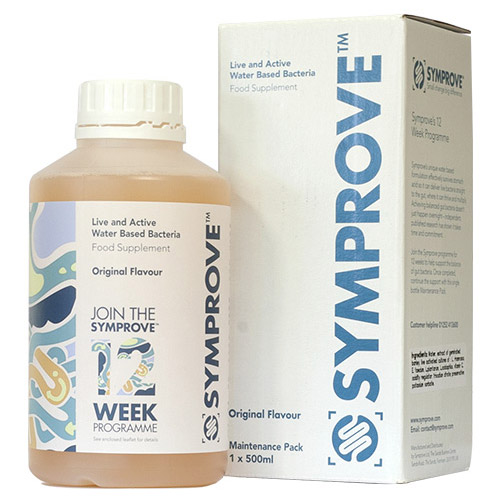
Symprove: We love this product’s 12-week plan, which is especially good for intensive gut re-population. Symprove’s unique water-based formula is packed full of live, active bacteria that don’t trigger digestion, meaning more of the live probiotics reach the gut. We recommend the mango and passionfruit flavour to take the tang out of drinking it!
Symprove, £158 for a 12 week course
Bio-Kult
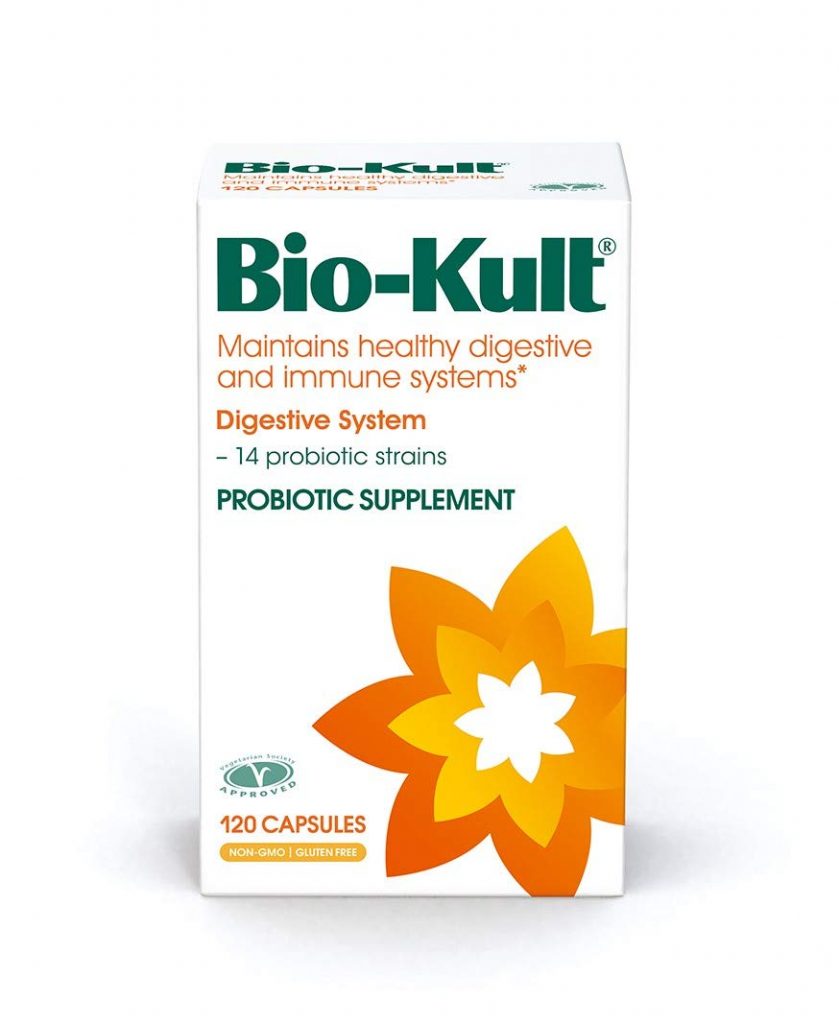
Bio-Kult passes our diversity test, containing 14 different strains of bacteria that help to protect against infection. The Vegetarian Society has approved this product, which is good news if you’re trying to cut down on animal products while still keeping your gut healthy. This is one of the best options for travelling as the compact capsules can be kept at room temperature.
Optibac
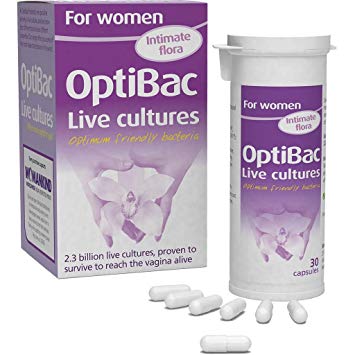
Each capsule contains over 2 billion live cultures and were specifically trialled on, and developed for, women. The bacteria in Optibac work to fight Thrush, Cystitis and Bacterial Vaginosis. Even better, they’re safe through pregnancy, breastfeeding and the menopause.
OptiBac for women, £47.99
VSL#3
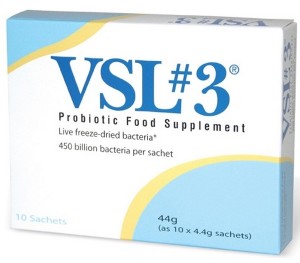
VSL#3 is an especially concentrated poly-biotic with 450 billion bacteria in every sachet to colonise in your gut – more than any of the other best sellers. The sachets are freeze-dried and easy to mix into smoothies, cereals and even salads. There are also lots of gut-friendly recipes on the company’s website to give your immune system more insurance against nasty infections.
VSL#3, £44.85
Top tip: When storing your probiotics always follow the advice on the packet; some probiotics need to be refrigerated while other freeze-dried brands claim they don’t. To be safe, always keep them cool or in the fridge.
Good Gut Checklist
Take a daily probiotic: While it won’t fix your diet, they can be a useful insurance policy for your gut alongside eating lots of fresh and fermented food
Drink fermented beverages: Why not wash down your probiotics some kombucha or a glass of milk kefir. Concentrated lacto-fermented whey is also rich in gut-friendly probiotics.
Go organic: Buying fresh fruit and vegetables from farmers markets that have yet to be scrubbed clean. Rinse them under the tap to remove the visible soil. This will still leaving behind some soil-based bacteria that’s good for your digestive and immune functions.
Antibiotic antidote: Don’t forget to take a probiotic supplement alongside any antibiotic. the two most beneficial strains here are L. acidophilus and L. rhamnosus.




